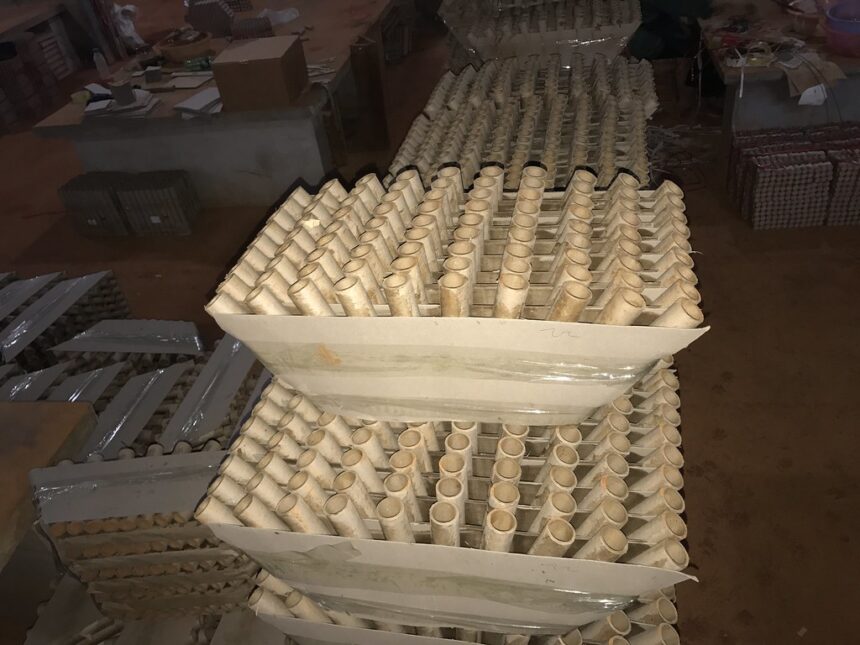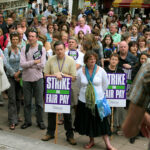Donald Trump, who was re-elected as President of the United States in 2016, has yet to officially assume his office.
His well-publicized promise of imposing new tariffs on Chinese products has already sent ripples throughout the global business world.
Trump’s latest proposal – a tariff of 60% or more on Chinese imports – has revived these concerns.
US and international companies are preparing to minimize the impact of potential tariffs of 20% on all products made abroad.
Steve Madden will cut production in China in half
Steve Madden, an American fashion retailer famous for its footwear and accessories, was among the first to take action.
CEO Edward Rosenfeld revealed the company has taken swift action to protect itself from the economic downturn. The company imports more than 70% of its US stock from China.
Rosenfeld announced that it would cut its production in China by almost half over the next year and instead focus on factories in Vietnam, Cambodia Brazil, Mexico, and other countries.
Rosenfeld said on a Thursday call after the company’s earnings that they had been planning for a scenario where we would need to move goods from China more quickly.
“As early as yesterday morning, we put that plan into motion.”
This proactive measure comes after years of diversifying production to mitigate the risks associated with concentrated sourcing from China.
Rosenfeld acknowledged that maintaining supply chains outside China presents logistical challenges and operational challenges to companies that they must navigate carefully.
Breville will move production out of China
Breville, an Australian appliance giant known for its premium kitchen appliances, has also echoed similar changes in response to Trump’s policy promises.
Breville CEO Jim Clayton told shareholders at its annual meeting held on Thursday that “now that [Donald] Trump won the US Presidential elections, the near-term risks of material tariff increases on Chinese consumer goods have solidified.”
Clayton said that the company has already taken action in response to Trump’s election. This includes accelerating the relocation more of its production outside of China to protect itself from new US tariffs.
Clayton said: “We will continue to build our inventory in the US unabated and likely until the tariffs are increased.”
The Australian company sells appliances such as espresso machines, toasters and microwaves to over 70 countries, among them the US.
The majority of the products are produced around Shenzhen. Shenzhen is a large Chinese city near the Hong Kong border.
Breville has a long-standing relationship with Chinese manufacturers in Shenzhen. This is a major industrial centre.
Clayton acknowledged that although these partnerships have historically enabled the company to maintain a competitive pricing strategy, the risk of imminent tariffs has forced a change in strategy.
This tactic builds upon Breville’s previous crisis-management during the COVID-19 Pandemic, where they stockpiled goods to buffer against disruptions in the supply chain.
Experts warn, however, that excessive stocking can be risky, as it could lead to a shift in consumer demand, which could reduce profit margins.
Church & Dwight Co., in addition to Steve Madden and Breville, is also shifting production out of China, especially for its Waterpik oral-care line.
“We have plans in place and we’ve taken actions to mitigate this impact,” CFO Rick Dierker responded last week to a question about tariffs.
“We are all aware of the implications.”
Taiwan offers assistance to relocate businesses
Taiwan has emerged in recent years as a key player in the changing production landscape.
Kuo Jyh Huei, the nation’s Economy Minister, announced plans to assist Taiwanese companies seeking to relocate their production bases away from China.
Kuo stressed that the Trump tariffs could have a negative impact on Taiwanese companies who heavily invested in China for the past 40 years.
This initiative is aligned with broader supply-chain strategies, which could see Taiwanese companies not only shift production domestically, but also explore relocation to US soil in order to mitigate exposure to new tariffs.
The challenges of moving away from China
Bert Hofman, former World Bank Country Director for China, gave insight into why businesses may find it difficult to leave China.
“Most suppliers of companies like Madden are located in China. It is therefore easy to source from there. Moving production to another country adds complexity, in terms of customs, logistics, and settling in a new country.
This inherent complexity could force companies to choose low-cost manufacturing base outside of China instead of a full relocation to America.
Wei-Weng Chen, an analyst at RBC Capital Markets, warned that Breville’s plan of stock accumulation was a concern.
Chen noted that increased inventory may increase the company’s working-capital intensity, which could impact stock performance if consumers cut back on spending in response to economic pressures.
This post Trump tariff fear: companies begin to move production from China may be updated as new developments unfold
This site is for entertainment only. Click here to read more






